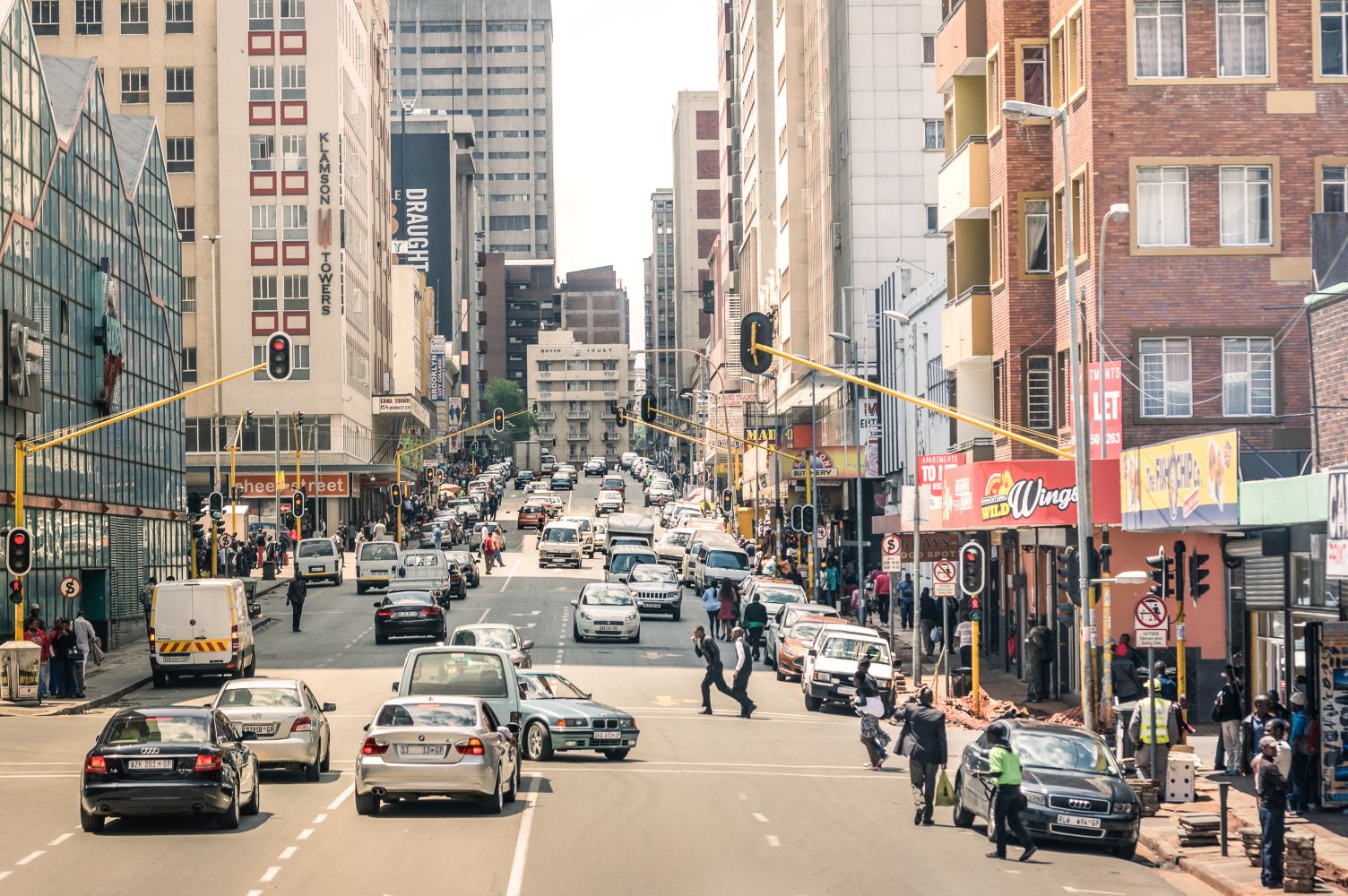When a vagrant directs traffic, you know the city is gone.
My morning commute from Melville to the Moneyweb office in Houghton Estate takes about ten minutes. The route winds through the leafy suburbs of Parkview, past the zoo and Saxonwold, before crossing Oxford Road into Houghton Estate. It’s a short drive that always leaves me angry when I open the office door.
There are eight notable potholes along the route. I say “notable” because they’re large enough to have their own GPS coordinates. There are also four traffic lights, only two of which worked on Friday. The other two were broken, one being off for nearly two months. An unemployed man has assumed the role of traffic officer and does more than a half-decent job regulating the traffic. There is no traffic officer in sight.
We’ve had running water at home for a few weeks now — which, in Joburg terms, qualifies as a winning streak. My solar system has also held up well, shielding us from the increasingly frequent power cuts caused by ageing and overburdened infrastructure.
ALSO READ: Morero’s vision to make Johannesburg a world-class African city
Yesterday, I rode my mountain bike along the Braamfontein Spruit. For those non-Joburgers, it is a 30km long green strip running through Johannesburg along the river, offering some of the best mountain biking in Gauteng.
I stick to the mountain bike these days, as my wife forbids me from riding on the road. The pieces of remaining road between the potholes are cracked, and the non-enforcement of traffic laws has transformed taxi drivers into hell drivers without any regard for traffic laws. Cops tend to emerge only when it’s time to extract the customary R20 “tollgate fee” from minibus drivers.
But even the spruit is not spared. At Alberts Farm, the trail now crosses the remnants of a sewage spill from recent rains. Garbage lines both sides of the river, and the mess continues right through to the Emmarentia Botanical Gardens.
This is the daily reality in Johannesburg – a city I care about deeply. I grew up in Stellenbosch, but Jozi has long been home. I love its people, the energy and the vast man-made forest that still gives the city a measure of charm and resilience. But that affection coexists with a growing sense of despair.
ALSO READ: State of the City: Joburg thirsts for solutions as Morero takes the stage
Johannesburg is failing. The rot isn’t confined to the inner city – which I haven’t visited in years – but stretches across suburb after suburb. Service delivery has all but collapsed, and the state is absent in every meaningful sense.
And yet, it’s the people who are keeping the city from going over the edge. Across Johannesburg, communities are stepping in where the state has long checked out. In Melville, where I live, a well-organised security initiative and an active homeowners’ association are driving efforts to make the suburb safer, fighting the sale of drugs, pushing back against the flood of liquor licences, and even initiating plans to close off certain streets to improve safety. That application has been with the Johannesburg Metro for nearly two years, probably gathering dust in the same drawer as half the city’s service plans. Hopefully, it will come through before someone gets hurt.
There was a time when the city more or less worked. The basics were largely intact under ANC mayors Amos Masondo and Parks Tau and during Herman Mashaba’s time with the DA. Mashaba stepped down in 2019. Since then, the city has been passed around like a hot potato – eight mayors in six years.
It also speaks to the dysfunction of Gauteng’s political landscape, where political parties – especially the ANC – are more focused on internal power games than the basics of service delivery. That much is obvious to anyone who lives here.
ALSO READ: Joburg needs action, not a ‘bomb squad’
President Cyril Ramaphosa, to his credit, finally acknowledged the obvious in March when he called Johannesburg a “dump” and warned that the G20 summit could become an embarrassment if nothing changes. He even launched a new presidential initiative to fix the city. But predictably, apart from appointing another “committee,” he didn’t do anything to hold the Joburg leadership to account. Not Panyaza Lesufi, premier, Dada Morero, the current mayor, or anyone else.
And then came Morero’s big announcement last week, which caused me to burst out laughing: a new “bomb squad” to rescue Johannesburg. He likened it to the Springboks’s famous bench. It’s a flattering comparison, but badly misjudged. The Springboks’s bomb squad replaces world-class forwards. In Johannesburg’s case, we’re not talking about tired legs – we’re talking about a leadership team that’s been missing in action for years.
The bomb squad’s leader is a 73-year-old former journalist and ANC Veterans’ League president. Not an engineer or professional project manager: another ANC cadre.
I’m looking forward to next year’s local elections, not because I expect a sudden fix, but because the implosion of the ANC in the metros now seems inevitable. And that might just mirror the decline of this city – only one of the two has a chance of being reversed.
Let’s hope it’s not too late.
This article was republished from Moneyweb. Read the original here.
